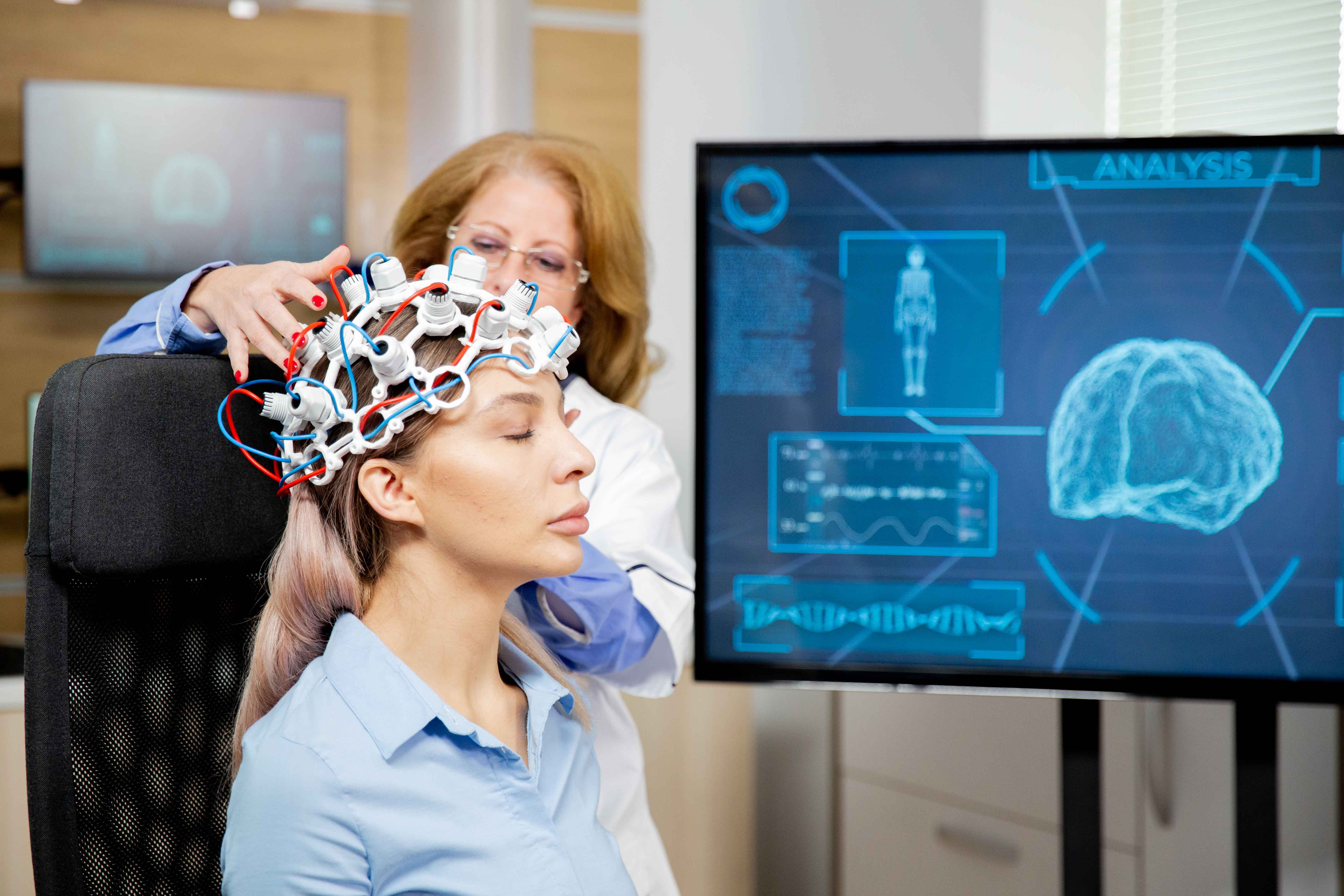Comprehensive brain, spine, and nerve care: neurology for medical disorders; neurosurgery for operable conditions (tumors, aneurysms, hydrocephalus, deformity). India offers JCI/NABH-accredited centers, fellowship-trained clinicians, iMRI/navigation, Gamma Knife/CyberKnife, and endoscopic techniques—at major cost advantages. MediHeal coordinates opinions, quotes, visas, travel, and rehab.
Treatment Guide
Neuroscience
Neuroscience care in India integrates advanced neurosurgery and neurology with modern technology (iMRI, navigation, stereotaxy, radiosurgery) and coordinated international programs—delivering faster access and substantial savings via MediHeal International.


Quick Answer
Who Needs Neuroscience
- Structural brain/spine issues with imaging correlation (tumor, aneurysm/AVM, hydrocephalus, severe stenosis/disc, deformity).
- Persistent/progressive deficits or refractory symptoms despite medical management (e.g., drug-resistant epilepsy, Parkinson’s for DBS).
- Trauma or instability requiring urgent or planned operative care.
Why Choose India
- JCI/NABH-accredited hospitals; fellowship-trained neurosurgeons/neurologists; English-speaking teams.
- Advanced tech: intra-operative MRI, neuronavigation, endoscopy, stereotaxy, Gamma Knife/CyberKnife, neuromonitoring.
- Shorter waits and transparent packages—often 50–80% lower than US/UK pricing.
How MediHeal International Helps
- Center matching for tumor, skull base/vascular, functional (DBS), trauma, and complex spine programs.
- Itemized quotes specifying technology (iMRI/navigation/radiosurgery), ICU days, implants/consumables, and rehab plans.
- End-to-end logistics: visas, airport transfers, accommodation, interpreters, and structured rehab with tele-follow-ups.
Types of Neuro (Neuro & Spine)
- Brain Tumor & Skull Base— Glioma, meningioma, pituitary/endoscopic endonasal, skull base lesions.
- Cerebrovascular— Aneurysm/AVM surgery, bypass; radiosurgery options per anatomy.
- Functional & Epilepsy— DBS for movement disorders; epilepsy surgery with monitoring and mapping.
- Hydrocephalus & CSF— Shunts, ETV; pediatric and adult pathways.
- Spine (Decompression/Fusion/ADR)— Discectomy, laminectomy, TLIF/PLIF/ALIF, artificial disc; MIS/endoscopic options.
- Radiosurgery— Gamma Knife/CyberKnife for selected tumors/AVMs/trigeminal neuralgia.
The Surgical Journey
Pre-arrival
- Upload MRI/CT (and angiography for vascular), clinic notes, medication lists for remote review.
- Receive a written plan with risks, required tech (navigation/iMRI/radiosurgery), ICU needs, LOS, and itemized costs.
On Arrival
- Finalize imaging and anesthesia clearance; scheduling and consent with interpreter-supported counselling.
- Care manager coordinates daily logistics, billing, and family updates.
Procedure & Monitoring
- Surgery/radiosurgery as planned; neuro-ICU/step-down monitoring, pain control, early mobilization as appropriate.
- Daily rounds; early rehab and discharge readiness planning.
Rehab & Continuity
- Physio/OT/speech therapy plans; seizure/spasticity protocols where indicated.
- Digital records, discharge summary, and tele-follow-ups; handover to home-country neurologist/neurosurgeon.
Recovery Timeline
Craniotomy (tumor/vascular)
Typical stay 5–10 days; activity restrictions and neuro-rehab individualized.
Endoscopic Skull Base
Shorter stays with nasal precautions; follow-up for endocrine/visual assessment as needed.
Endoscopic/MIS Spine
Many discharge in 1–3 days; graduated activity over weeks per procedure.
Benefits to Expect
- Access to advanced tech and subspecialty teams at accredited centers with predictable schedules.
- Integrated neuro-ICU and rehab improve safety and functional outcomes.
- Significant cost savings with transparent inclusions for international travelers.
Risks & Complications
General Risks
- Bleeding, infection, CSF leak, seizures, neurological deficits, anaesthesia risks; hardware issues (where applicable).
Revision Risk
- Prefer accredited centers with neuro-ICU, neuromonitoring, and experienced subspecialty teams.
- Optimize comorbidities, adhere to DVT/infection prevention, and follow rehab/medication protocols.
Cost & Inclusions
Indicative Costs
- Request itemized quotes specifying technology used (navigation, iMRI, radiosurgery), expected ICU days, and rehab plan.
* Final quote after clinical evaluation; varies by implant, technique (e.g., robotics), hospital accreditation, city, and length of stay.
Travel & Visa Essentials
- Medical visa pathway supports neurosurgery/advanced neurology; typical documents: passport, medical records, hospital invitation, funds proof.
- Processing commonly ~3–7 working days; multiple entries/extension possible for prolonged courses.
Preparing for Surgery
- Bring imaging (MRI/CT/angiography) and reports on a drive/CD; medication and allergy lists.
- Discuss anticoagulants and seizure meds; arrange caregiver and accommodation near hospital.
- Line up post-discharge rehab (PT/OT/speech) and tele-follow-up slots.
Rehabilitation Focus
- Individualized neuro-rehab with physio, occupational, and speech therapy where indicated.
- Seizure/spasticity management, cognitive therapy, and return-to-activity counselling.
- Tele-reviews and local-neurologist handover for long-term management.
Frequently Asked Questions
How much does brain tumor surgery cost in India?
Public ranges often cite ₹1.9–4.5 lakh depending on complexity, technology used, and hospital tier.
Is radiosurgery (Gamma Knife/CyberKnife) available?
Yes—availability and cost depend on plan complexity and fractions; indicated for select lesions.
How long should international patients plan to stay?
Many cases need 2–3 weeks in-country for evaluation, surgery, and early recovery before fit-to-fly.
What documents are needed for a medical visa?
Passport, photos, medical reports, hospital invitation, and financial proof; processing commonly 3–7 working days.